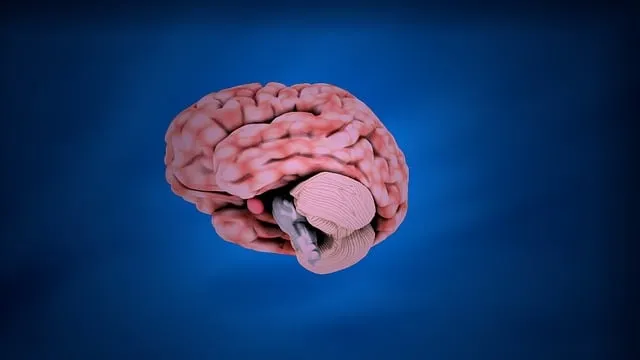The Kaiser Permanente behavioral health center in Longmont tackles substance abuse as a complex, community-wide issue, not a personal failure. They offer tailored care combining therapy, workshops, and support services using evidence-based treatments to address physical & mental health risks. Their focus on risk reduction, empowerment through coping skills, and community collaboration promotes long-term recovery while preventing future abuse. Through programs targeting youth, diverse communities, and early intervention, the center actively creates a supportive environment for improved well-being.
Substance abuse poses significant risks to individuals and communities, but there are effective strategies to mitigate these dangers. This article explores a multi-faceted approach to risk reduction, focusing on both personal and collective efforts. We delve into the understanding of substance abuse and its impacts, highlighting the critical role of centers like the Kaiser Permanente Behavioral Health Center Longmont in providing specialized care. Additionally, we offer practical individual strategies, emphasize community support, and discuss preventative measures for early intervention.
- Understanding Substance Abuse and Its Risks
- The Role of Kaiser Permanente Behavioral Health Center Longmont
- Individual Strategies for Risk Reduction
- Community Support and Collective Efforts
- Preventative Measures and Early Intervention
Understanding Substance Abuse and Its Risks

Substance abuse is a complex issue that impacts individuals and communities across various demographics. It’s crucial to understand that substance use disorders aren’t merely personal failures; they are chronic illnesses characterized by compulsive behaviors, impaired control, and continued use despite harmful consequences. This can lead to severe physical and mental health issues, social problems, and legal troubles. At the Kaiser Permanente behavioral health center Longmont, we recognize these risks and strive to provide comprehensive care tailored to each individual’s unique needs.
Through a combination of evidence-based treatments, therapy options, and support services, our team aims to empower those struggling with substance abuse to achieve long-term recovery. Additionally, the Stress Management Workshops Organization offers valuable resources for both individuals and organizations looking to enhance mental health resilience and prevent substance abuse through proactive measures. Similarly, Mental Health Education Programs Design play a pivotal role in raising awareness, challenging stigma, and equipping people with knowledge about addiction and recovery. Effective risk management planning for mental health professionals, as implemented at Kaiser Permanente behavioral health center Longmont, is also essential to ensure safe and effective treatment delivery while minimizing potential harm.
The Role of Kaiser Permanente Behavioral Health Center Longmont

The Kaiser Permanente Behavioral Health Center Longmont plays a pivotal role in addressing substance abuse issues within the community. As a specialized facility, it offers comprehensive services tailored to meet the unique needs of individuals struggling with addiction and related mental health concerns. The center’s expertise lies in providing effective strategies for risk reduction, focusing on both short-term interventions and long-term support. Through evidence-based practices, they assist patients in developing coping skills, learning anxiety relief techniques, and gaining insights into managing underlying conditions that contribute to substance abuse.
In addition to individual therapy, the Kaiser Permanente Behavioral Health Center Longmont facilitates group sessions, crisis intervention guidance, and educational workshops. These programs empower individuals with the tools necessary to navigate challenging situations, build resilience, and foster healthier lifestyles. By combining professional care with a holistic approach, the center ensures that patients receive the comprehensive support required to overcome substance abuse and its associated risks, ultimately contributing to improved well-being and recovery outcomes.
Individual Strategies for Risk Reduction

Many individuals seeking support for substance abuse often find success through individualized risk reduction strategies. Kaiser Permanente behavioral health center in Longmont offers specialized programs tailored to address unique challenges. These strategies focus on empowering individuals with coping mechanisms and tools to resist triggers and make healthier choices. One such approach is empathy-building, where therapists foster understanding and compassion, helping clients manage cravings and emotions without resorting to substances.
Additionally, mental wellness coaching plays a pivotal role in risk reduction. Programs developed to enhance self-care, stress management, and emotional resilience equip individuals with long-lasting skills for maintaining sobriety. By combining mental wellness coaching with confidence-boosting activities, the Kaiser Permanente Longmont center enables clients to rebuild their lives, fostering a sense of purpose and motivation to stay on track. These personalized interventions create a solid foundation for lasting recovery.
Community Support and Collective Efforts

Community Support and Collective Efforts play a pivotal role in mitigating substance abuse within any society, including the Longmont area served by Kaiser Permanente behavioral health center. By fostering collaboration among various stakeholders—from schools and community centers to government agencies and non-profit organizations—a comprehensive network of support can be established. This collective approach ensures that individuals at risk or struggling with addiction receive multi-faceted assistance tailored to their unique needs.
Public Awareness Campaigns Development is a key component within this strategy, focusing on educating the community about the risks associated with substance abuse and promoting alternative coping mechanisms. Through such initiatives, residents are equipped with knowledge and resources to prevent experimentation or offer help to loved ones in need. Enhanced public awareness contributes to an environment where individuals feel supported and less likely to turn to substances as a means of managing stress or anxiety relief, thereby reducing the overall prevalence of substance abuse in the community.
Preventative Measures and Early Intervention

Preventative Measures and Early Intervention play a pivotal role in addressing substance abuse issues. Organizations like the Kaiser Permanente behavioral health center in Longmont are at the forefront of this approach, focusing on proactive strategies to mitigate risks before they escalate. These measures involve comprehensive Mental Health Awareness programs that target high-risk populations, especially youth. By integrating Cultural Sensitivity in Mental Healthcare Practice, these centers cater to diverse communities, ensuring accessible and tailored support.
Early intervention techniques are crucial in disrupting the progression of substance abuse. Through community outreach programs and Mental Wellness Coaching Programs Development, at-risk individuals can receive timely guidance and counseling. This proactive approach not only educates but also empowers people to make informed choices regarding their mental wellness, breaking potential abusive patterns before they become entrenched.
Substance abuse poses significant risks, but with comprehensive strategies, these dangers can be mitigated. The article has explored various approaches, from individual tactics like those offered by the Kaiser Permanente Behavioral Health Center Longmont to community-driven initiatives and preventative measures. By combining behavioral health services, personal responsibility, and collective support, we can significantly reduce substance abuse’s impact. Early intervention remains a crucial game-changer, ensuring folks receive help before their situation worsens. Remember that with the right resources, navigating these challenges is possible, fostering a healthier and safer community for all.






